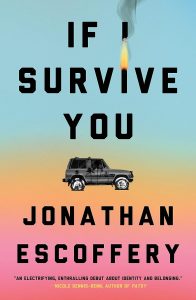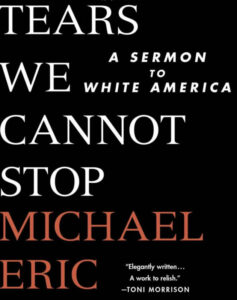When Donald Trump got elected president, friends who lived in other countries asked me what happened. How could the United States, they asked, elect such a mendacious, immoral con man to the most powerful democratic office on the planet? I didn’t have an answer.
Over the course of Trump’s four convulsive years, a torturous test of democracy that culminated in the madness of the January 6 riot in Washington, I asked myself the question again and again. There were, and there continue to be, plenty of theories, among them the economic stagnation of the working class; the arrogance of Hillary Clinton; and the generalized cluelessness among upper-crust Americans – the so-called elites – of the political tectonics at work in the nation.
There is one more factor, though, one which I’ve come to believe not only determined the 2016 election but underlies the accelerating rancor in the country, and that is race.
In the wake of the nation’s first black president, a Harvard-educated lawyer with a Harvard-educated wife, white Americans of moderate and lower income and education levels – which, of course, are linked – voted overwhelmingly for Trump, who shamelessly planted the seeds of his candidacy with his dog-whistling insinuations that Barack Obama was not a “real” American – not one of “us.”
Imagine, then, in the midst of a presidency rooted in racism – don’t forget Trump’s opening-day salvo about Mexican rapists – how timorous whites reacted to the sight of tens of thousands of black Americans protesting the police murders of black men and women by chanting “Black Lives Matter.” Gun sales rose nationally to record levels, conservative states made it harder for blacks to vote, and unabashed white supremacists ran for office and won (Marjorie Taylor Greene).
Yes, it is really about race. There are other culprits, of course, chiefly mind-warping religious dogma, but the specter of the United States become blacker, browner, yellower, or any shade other than white-ish frightens the living bejeezus out of many white Americans and drives them to embrace extremist thinking – such a stealing a democratic election.
The blood of racism courses through the veins of America. In Tears We Cannot Stop, Michael Eric Dyson uses the words of Martin Luther King, Jr., to time-stamp its origins.
“Our nation was born in genocide when it embraced the doctrine that the original American, the Indian, was an inferior race,” King said. “Even before there were large numbers of Negroes on our shores, the scar of racial hatred had already disfigured colonial society.” We are “perhaps the only nation which tried as a matter of national policy to wipe out its indigenous population.”
I came across this book, published in 2017, during my ongoing inquest into what happened to the America I thought I knew but clearly did not. Written as “a sermon to white America,” Dyson, a widely known author and scholar who also is a Baptist minister, says his intent is “healing our nation through honest, often blunt, talk” that “will make you squirm in your seat with discomfort before, hopefully, pointing a way to relief.”
As a preacher, Dyson is both frank and avuncular. Each stinging slap of truth about white racism, whether institutional such as hiring or housing discrimination, or individual such as white retail clerks who ignore black shoppers or white cops who brace black college professors in front of their children for being in the “wrong” neighborhood – comes with the salve of, not compassion, but understanding that centuries of racist messaging causes whites to act as they do. Dyson doesn’t excuse, but he does recognize the involuntary racial reflex, an unconscious response which, he urges, can be overcome with conscious effort.
Planted in the pew, I hung on Dyson’s words when, in the heart of his sermon, he writes about what it’s like to be black in America, even for a man of letters and financial good fortune like himself. He speaks of how he was raised, to defer to whites, to defer to police, to defer to any authority, subservience learned in an unwritten manual of survival in a white world.
The manual “tells you to make sure you lower your eyes, say yes sir, no smart mouthing, no anger, no resentment, just complete total compliance without a whiff of personality or humanity,” says Dyson, who then asks his white readers, “Ever had to endure that humiliation, my friends?”
No, I have not.
Even when, in my younger days, I had a few scrapes with the law and awoke more than once to a barred view, I never felt I shared the same fate as the black boys and men who occupied similar spaces in the same institution. I could not have articulated this then, but I see now how my whiteness elevated me to a rung above them. I was in a cell. They were a cell. But I was white.
A shameful perspective to admit to, but it was true then, just as it is still true now for so many white Americans. Not all. Not me. But many.
Like all good teachers, and preachers, too, I suppose, Dyson focuses me on my ignorance, a condition, I have found, that increases with age despite my best efforts to keep it in check. Near the end of the book, Dyson offers tonics for white Americans who’d like to detoxify themselves. One remedy is education. “You must educate yourselves about black life and culture,” he says. “Racial literacy is as necessary as it is undervalued.”
If such an education interests you, my fellow pale-skinned Americans, and I hope it does, add Tears We Cannot Stop to your syllabus.







